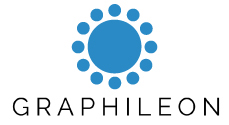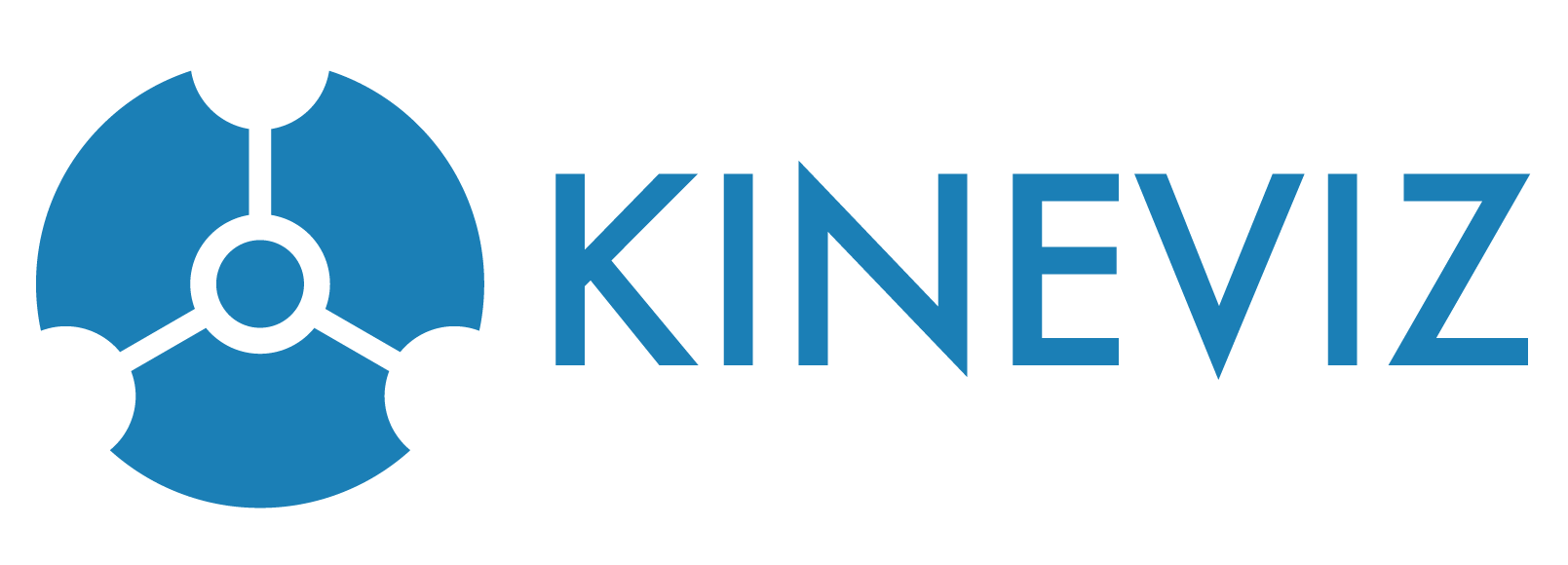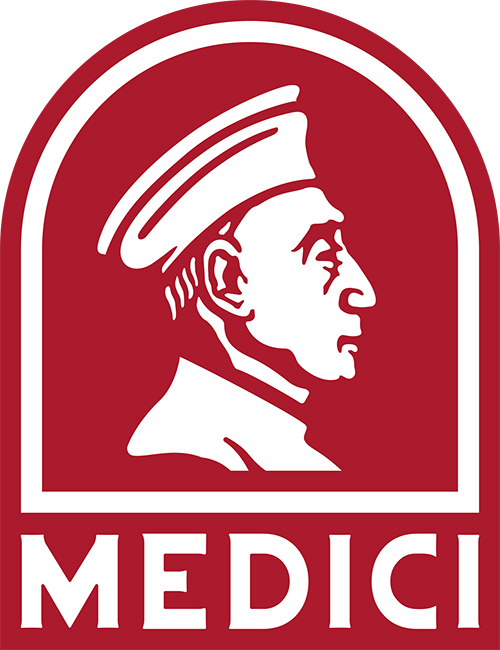We're already sending invites and confirming speakers for the next Data Day. For those of you who would like to join us as a speaker, the proposals page will be up in a few days.
Dr. Denise Koessler Gosnell (Charleston) @DeniseKGosnell
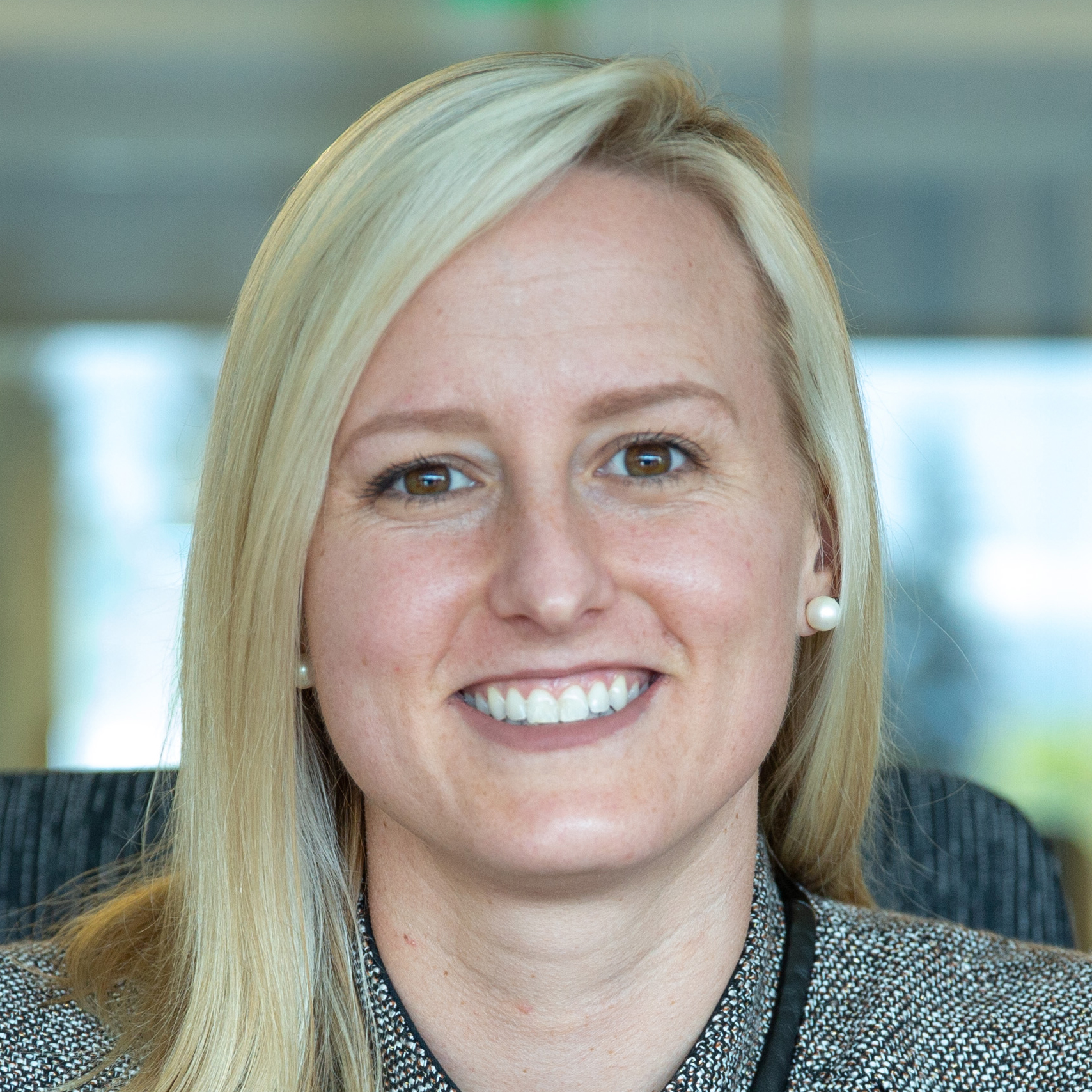 As Chief Data Officer of DataStax, Dr. Denise Gosnell, applies her experiences from within the graph and machine learning industries to drive more informed decisions with data. Prior to this role, Dr. Gosnell joined DataStax to create and lead the Global Graph Practice, a team that builds some of the largest distributed graph applications in the world.
As Chief Data Officer of DataStax, Dr. Denise Gosnell, applies her experiences from within the graph and machine learning industries to drive more informed decisions with data. Prior to this role, Dr. Gosnell joined DataStax to create and lead the Global Graph Practice, a team that builds some of the largest distributed graph applications in the world.
Dr. Gosnell's career centers on her passion for examining, applying, and advocating the applications of graph data. She has patented, built, published, and spoken on dozens of topics related to graph theory, graph algorithms, graph databases, and applications of graph data across all industry verticals (many of those talks were created for the DataDay and GraphDay audiences right here in Austin!).
Prior to her role with DataStax, Gosnell worked in the healthcare industry, where she contributed to software solutions for permissioned blockchains, machine learning applications of graph analytics, and data science. Dr. Gosnell earned her Ph.D. in Computer Science from the University of Tennessee as an NSF Fellow. Her research coined the concept "social fingerprinting" by applying graph algorithms to predict user identity from social media interactions.
Holden Karau (San Francisco) @holdenkarau
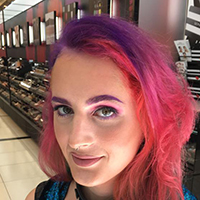 Holden Karau is a transgender Canadian software engineer working in the bay area. Previously, she worked at IBM, Alpine, Databricks, Google (twice), Foursquare, and Amazon. Holden is the coauthor of Learning Spark, High Performance Spark, and another Spark book that’s a bit more out of date. She’s a committer on the Apache Spark, SystemML, and Mahout projects. When not in San Francisco, Holden speaks internationally about different big data technologies (mostly Spark). She was tricked into the world of big data while trying to improve search and recommendation systems and has long since forgotten her original goal. Outside of work, she enjoys playing with fire, riding scooters, and dancing. Holden's latest project is https://www.distributedcomputing4kids.com/
Holden Karau is a transgender Canadian software engineer working in the bay area. Previously, she worked at IBM, Alpine, Databricks, Google (twice), Foursquare, and Amazon. Holden is the coauthor of Learning Spark, High Performance Spark, and another Spark book that’s a bit more out of date. She’s a committer on the Apache Spark, SystemML, and Mahout projects. When not in San Francisco, Holden speaks internationally about different big data technologies (mostly Spark). She was tricked into the world of big data while trying to improve search and recommendation systems and has long since forgotten her original goal. Outside of work, she enjoys playing with fire, riding scooters, and dancing. Holden's latest project is https://www.distributedcomputing4kids.com/
.
Robert Munro (San Francisco ) @WWRob
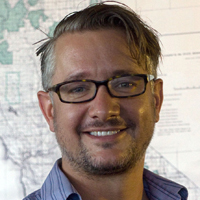 Robert Munro (LinkedIn) is an expert in combining Human and Machine Intelligence, working with Machine Learning approaches to Text, Speech, Image and Video Processing. Robert has founded several AI companies, building some of the top teams in Artificial Intelligence. He has worked in many diverse environments, from Sierra Leone, Haiti and the Amazon, to London, Sydney and Silicon Valley, in organizations ranging from startups to the United Nations. In addition to publishing more than 50 papers, Robert is the author of the upcoming Manning publication Human in the Loop Machine Learning. He has a PhD from Stanford University.
Robert Munro (LinkedIn) is an expert in combining Human and Machine Intelligence, working with Machine Learning approaches to Text, Speech, Image and Video Processing. Robert has founded several AI companies, building some of the top teams in Artificial Intelligence. He has worked in many diverse environments, from Sierra Leone, Haiti and the Amazon, to London, Sydney and Silicon Valley, in organizations ranging from startups to the United Nations. In addition to publishing more than 50 papers, Robert is the author of the upcoming Manning publication Human in the Loop Machine Learning. He has a PhD from Stanford University.
Josh Perryman (Bryan / College Station) @joshperryman
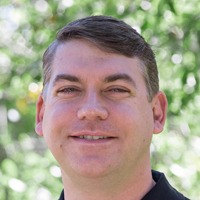 Josh Perryman likes to play with data. Oftentimes this is implementing proprietary algorithms closer to the data for performance or scale. Sometimes it is ad-hoc investigation and analysis, a sort of exploratory querying. A few times he’s been able to leverage his experience with data engines for dramatic performance improvements. But the real joy is designing a schema for both functionality and performance, one which increases the productivity of other developers and enables a technology to solve new problems or deliver new value to the business.
Josh Perryman likes to play with data. Oftentimes this is implementing proprietary algorithms closer to the data for performance or scale. Sometimes it is ad-hoc investigation and analysis, a sort of exploratory querying. A few times he’s been able to leverage his experience with data engines for dramatic performance improvements. But the real joy is designing a schema for both functionality and performance, one which increases the productivity of other developers and enables a technology to solve new problems or deliver new value to the business.
Technology isn't just data, and Josh does more than just play with data. He’s worked with high performance computing (HPC) environments, taking computations from hours to minutes or seconds. He has built visualizations which deliver new insights into complex data domains. He’s managed technology personnel, both directly and indirectly, to deliver technology solutions. Josh has put together more types of technology components, software and hardware, than can be counted, because one of his fortes is solving problems by building sustainable systems. Josh is currently Director of Product Development, Graph Solutions at VeracityID.
Jennifer Prendki (San Francisco) @jlprendki
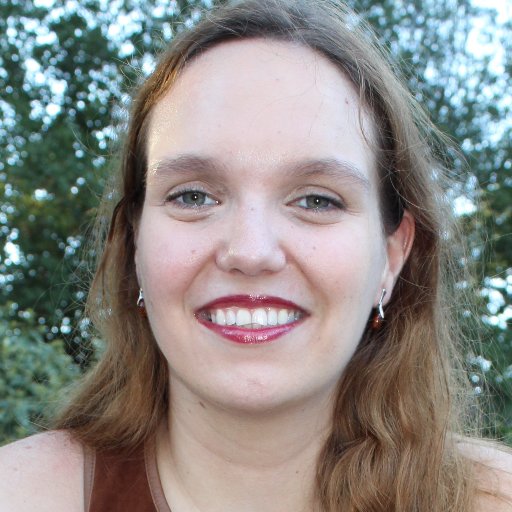 Jennifer Prendki is the founder and CEO of Alectio and has spent a large part of her career promoting the importance of creating a better approach to Machine Learning Lifecycle Management. Her current focus is on helping ML teams build better models with less data. Prior to founding Alectio, she was the VP of Machine Learning at Figure Eight, one of the industry leader in data labeling (recently acquired by Appen); she also headed Machine Learning at Atlassian and various Data Science initiatives on the Search team at Walmart Labs. She is also known for her active support of women in STEM and Technology.
Jennifer Prendki is the founder and CEO of Alectio and has spent a large part of her career promoting the importance of creating a better approach to Machine Learning Lifecycle Management. Her current focus is on helping ML teams build better models with less data. Prior to founding Alectio, she was the VP of Machine Learning at Figure Eight, one of the industry leader in data labeling (recently acquired by Appen); she also headed Machine Learning at Atlassian and various Data Science initiatives on the Search team at Walmart Labs. She is also known for her active support of women in STEM and Technology.
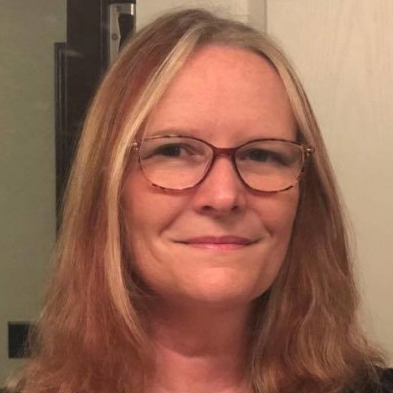 In two decades in the data management industry, Paige Roberts (Linkedin), Open Source Relations Manager at Vertica, has worked as an engineer, a trainer, a marketer, a product manager, and a consultant. Now, she promotes understanding of Vertica, MPP data processing, open source, and how the analytics revolution is changing the world.
In two decades in the data management industry, Paige Roberts (Linkedin), Open Source Relations Manager at Vertica, has worked as an engineer, a trainer, a marketer, a product manager, and a consultant. Now, she promotes understanding of Vertica, MPP data processing, open source, and how the analytics revolution is changing the world.
Paige is a total geek who is into role-playing games, LARP’ing in the SCA, Doctor Who, superheroes, space exploration, comics, Tolkien, etc. Paige writes and publishes fantasy and science fiction stories under her maiden name Paige E. Ewing. She won the Kennedy Space Center’s global Space Apps Challenge three years ago for coming up with an idea for growing food on Mars, And she's a pretty mean shot with a recurve, crossbow, or long bow.
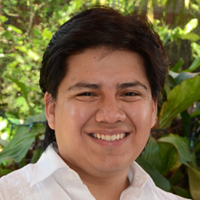 Dr. Juan Sequeda is the co-founder of Capsenta, a spin-off from his research, and the Senior Director of Capsenta Labs. He holds a PhD in Computer Science from the University of Texas at Austin. His research interests are on the intersection of Logic and Data and in particular between the Semantic Web and Relational Databases for data integration, ontology based data access and semantic/graph data management. Juan is the recipient of the NSF Graduate Research Fellowship, received 2nd Place in the 2013 Semantic Web Challenge for his work on ConstituteProject.org, Best Student Research Paper at the 2014 International Semantic Web Conference and the 2015 Best Transfer and Innovation Project awarded by Institute for Applied Informatics. Juan is the General Chair of AMW 2018, was the PC chair of the ISWC 2017 In-Use track, is on the Editorial Board of the Journal of Web Semantics, member of multiple program committees (ISWC, ESWC, WWW, AAAI, IJCAI) and co-creator of the Consuming Linked Data Workshop series. Juan is a member of the Graph Query Languages task force of the Linked Data Benchmark Council (LDBC) and has also been an invited expert member and standards editor at the World Wide Web Consortium (W3C).
Dr. Juan Sequeda is the co-founder of Capsenta, a spin-off from his research, and the Senior Director of Capsenta Labs. He holds a PhD in Computer Science from the University of Texas at Austin. His research interests are on the intersection of Logic and Data and in particular between the Semantic Web and Relational Databases for data integration, ontology based data access and semantic/graph data management. Juan is the recipient of the NSF Graduate Research Fellowship, received 2nd Place in the 2013 Semantic Web Challenge for his work on ConstituteProject.org, Best Student Research Paper at the 2014 International Semantic Web Conference and the 2015 Best Transfer and Innovation Project awarded by Institute for Applied Informatics. Juan is the General Chair of AMW 2018, was the PC chair of the ISWC 2017 In-Use track, is on the Editorial Board of the Journal of Web Semantics, member of multiple program committees (ISWC, ESWC, WWW, AAAI, IJCAI) and co-creator of the Consuming Linked Data Workshop series. Juan is a member of the Graph Query Languages task force of the Linked Data Benchmark Council (LDBC) and has also been an invited expert member and standards editor at the World Wide Web Consortium (W3C).
Joshua Shinavier (San Francisco) @joshsh
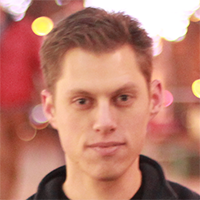 Joshua Shinavier is a primordial being of the graph database domain. As a co-founder of what is now Apache TinkerPop, he contributed to the first common APIs for graph databases, the original TinkerPop query language which influenced Gremlin, and the first tools which aligned the property graph and RDF data models, starting with neo4j-rdf-sail in 2008. At Uber, he leads the company-wide effort to unify data models and schemas across RPC, streaming, and storage. The scope of this effort includes developing standardized schemas, propagating standardized schemas throughout the company's infrastructure, developing mappings to integrate data across languages and environments, and getting as much as possible of Uber's data connected in the form of a graph of entities and relationships, facilitating data discovery and automated query planning. Joshua holds a PhD in computer science from RPI's Tetherless World Constellation, where he took the opportunity to explore the strange no man's land between graphs, cognition, and augmented reality. He feels, now as always, that the research, business, and open source communities have a lot to learn from each other with respect to graphs and knowledge representation.
Joshua Shinavier is a primordial being of the graph database domain. As a co-founder of what is now Apache TinkerPop, he contributed to the first common APIs for graph databases, the original TinkerPop query language which influenced Gremlin, and the first tools which aligned the property graph and RDF data models, starting with neo4j-rdf-sail in 2008. At Uber, he leads the company-wide effort to unify data models and schemas across RPC, streaming, and storage. The scope of this effort includes developing standardized schemas, propagating standardized schemas throughout the company's infrastructure, developing mappings to integrate data across languages and environments, and getting as much as possible of Uber's data connected in the form of a graph of entities and relationships, facilitating data discovery and automated query planning. Joshua holds a PhD in computer science from RPI's Tetherless World Constellation, where he took the opportunity to explore the strange no man's land between graphs, cognition, and augmented reality. He feels, now as always, that the research, business, and open source communities have a lot to learn from each other with respect to graphs and knowledge representation.
Michael Uschold (Seattle, WA ) @UscholdM
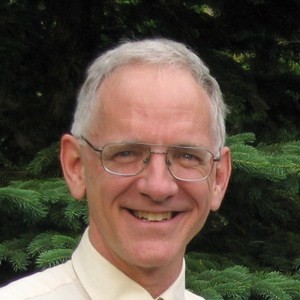 Michael Uschold, Senior Ontology Consultant at Semantic Arts, has over twenty-five years’ experience in developing and transitioning semantic technology from academia to industry. He pioneered the field of ontology engineering, co-authoring the first paper and giving the first tutorial on the topic in 1995 in the UK.
Michael Uschold, Senior Ontology Consultant at Semantic Arts, has over twenty-five years’ experience in developing and transitioning semantic technology from academia to industry. He pioneered the field of ontology engineering, co-authoring the first paper and giving the first tutorial on the topic in 1995 in the UK.
As a senior ontology consultant at Semantic Arts since October 2010, Michael trains and guides clients to better understand and leverage semantic technology using knowledge graphs. He has built commercial enterprise ontologies in digital asset management, finance, healthcare, legal research, consumer products, electrical devices, manufacturing and corporation registration. More recently he has focused on semantic application development using SPARQL for application code and R2RML for converting relational data into a knowledge graph.
During 2008-2009, Uschold worked at Reinvent on a team that developed a semantic advertising platform that substantially increased revenue. As a research scientist at Boeing from 1997-2008 he defined, led and participated in numerous projects applying semantic technology to enterprise challenges. He is a frequent invited speaker and panelist at national and international events, and serves on the editorial board of the Applied Ontology Journal. He received his Ph.D. in AI from Edinburgh University in 1991 and an MSc. from Rutgers University in Computer Science in 1982.
Jans Aasman (SF Bay)
 Jans Aasman (Wikipedia / LinkedIn) is a Ph.D. psychologist and expert in Cognitive Science - as well as CEO of Franz Inc., an early innovator in Artificial Intelligence and provider of the graph database, AllegroGraph. As both a scientist and CEO, Dr. Aasman continues to break ground in the areas of Artificial Intelligence and Knowledge Graphs as he works hand-in- hand with numerous Fortune 500 organizations as well as US and Foreign governments. Jans recently authored an IEEE article on “Enterprise Knowledge Graphs”.
Jans Aasman (Wikipedia / LinkedIn) is a Ph.D. psychologist and expert in Cognitive Science - as well as CEO of Franz Inc., an early innovator in Artificial Intelligence and provider of the graph database, AllegroGraph. As both a scientist and CEO, Dr. Aasman continues to break ground in the areas of Artificial Intelligence and Knowledge Graphs as he works hand-in- hand with numerous Fortune 500 organizations as well as US and Foreign governments. Jans recently authored an IEEE article on “Enterprise Knowledge Graphs”.
Dr. Aasman spent a large part of his professional life in telecommunications research, specializing in applied Artificial Intelligence projects and intelligent user interfaces. He gathered patents in the areas of speech technology, multimodal user interaction, recommendation engines while developing precursor technology for tablets and personal assistants. He was also a professor in the Industrial Design department of the Technical University of Delft. Dr. Aasman is a noted conference speaker at such events as Smart Data, NoSQL Now, International Semantic Web Conference, GeoWeb, AAAI, Enterprise Data World, Text Analytics, and TTI Vanguard to name a few.
Featured Speakers from Data Day Texas 2020
 Jesse Anderson is a data engineer, creative engineer, and managing director of the Big Data Institute. He works with companies ranging from startups to Fortune 100 companies on Big Data. This includes training on cutting edge technologies like Apache Kafka, Apache Hadoop and Apache Spark. He has taught over 30,000 people the skills to become data engineers. He is widely regarded as an expert in the field and for his novel teaching practices. Jesse is published on O’Reilly and Pragmatic Programmers. He has been covered in prestigious publications such as The Wall Street Journal, CNN, BBC, NPR, Engadget, and Wired. You can learn more about Jesse at Jesse-Anderson.com.
Jesse Anderson is a data engineer, creative engineer, and managing director of the Big Data Institute. He works with companies ranging from startups to Fortune 100 companies on Big Data. This includes training on cutting edge technologies like Apache Kafka, Apache Hadoop and Apache Spark. He has taught over 30,000 people the skills to become data engineers. He is widely regarded as an expert in the field and for his novel teaching practices. Jesse is published on O’Reilly and Pragmatic Programmers. He has been covered in prestigious publications such as The Wall Street Journal, CNN, BBC, NPR, Engadget, and Wired. You can learn more about Jesse at Jesse-Anderson.com.
Sanghamitra Deb (SF Bay) @sangha_deb
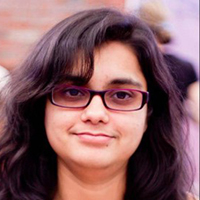 Sanghamitra Deb is a Data Scientist at Chegg, where she works on problems related school and college education to sustain and improve the learning process. Her work involves recommendation systems, graph modeling, deep NLP analysis , data pipelines and machine learning. Previously, Sanghamitra was a data scientist at a Accenture where she worked on a wide variety of problems related data modeling, architecture and visual story telling. Sanghamitra is active in Data Science outreach and believes in applying analytics to a range of domains such as pharma, HR, customer support, market research, etc. Prior to being data scientist she was an astrophysicist who studied the structure of the universe by modeling galaxy clusters.
Sanghamitra Deb is a Data Scientist at Chegg, where she works on problems related school and college education to sustain and improve the learning process. Her work involves recommendation systems, graph modeling, deep NLP analysis , data pipelines and machine learning. Previously, Sanghamitra was a data scientist at a Accenture where she worked on a wide variety of problems related data modeling, architecture and visual story telling. Sanghamitra is active in Data Science outreach and believes in applying analytics to a range of domains such as pharma, HR, customer support, market research, etc. Prior to being data scientist she was an astrophysicist who studied the structure of the universe by modeling galaxy clusters.
Dr. Ying Ding (Austin)
 Dr. Ying Ding is the Bill & Lewis Suit Professor of Information Technology at the University of Texas School of Information. Before that, she was a professor and director of graduate studies for data science program at School of Informatics, Computing, and Engineering at Indiana University. She has led the effort to develop the online data science graduate program for Indiana University. She also worked as a senior researcher at Department of Computer Science, University of Innsburck (Austria) and Free University of Amsterdam (the Netherlands). She has been involved in various NIH, NSF and European-Union funded projects. She has published 240+ papers in journals, conferences, and workshops, and served as the program committee member for 200+ international conferences. She is the co-editor of book series called Semantic Web Synthesis by Morgan & Claypool publisher, the co-editor-in-chief for Data Intelligence published by MIT Press and Chinese Academy of Sciences, and serves as the editorial board member for several top journals in Information Science and Semantic Web. She is the co-founder of Data2Discovery company advancing cutting edge AI technologies in drug discovery and healthcare. Her current research interests include data-driven science of science, AI in healthcare, Semantic Web, knowledge graph, data science, scholarly communication, and the application of Web technologies.
Dr. Ying Ding is the Bill & Lewis Suit Professor of Information Technology at the University of Texas School of Information. Before that, she was a professor and director of graduate studies for data science program at School of Informatics, Computing, and Engineering at Indiana University. She has led the effort to develop the online data science graduate program for Indiana University. She also worked as a senior researcher at Department of Computer Science, University of Innsburck (Austria) and Free University of Amsterdam (the Netherlands). She has been involved in various NIH, NSF and European-Union funded projects. She has published 240+ papers in journals, conferences, and workshops, and served as the program committee member for 200+ international conferences. She is the co-editor of book series called Semantic Web Synthesis by Morgan & Claypool publisher, the co-editor-in-chief for Data Intelligence published by MIT Press and Chinese Academy of Sciences, and serves as the editorial board member for several top journals in Information Science and Semantic Web. She is the co-founder of Data2Discovery company advancing cutting edge AI technologies in drug discovery and healthcare. Her current research interests include data-driven science of science, AI in healthcare, Semantic Web, knowledge graph, data science, scholarly communication, and the application of Web technologies.
Anna Lisa Gentile (San Jose ) @anligentile
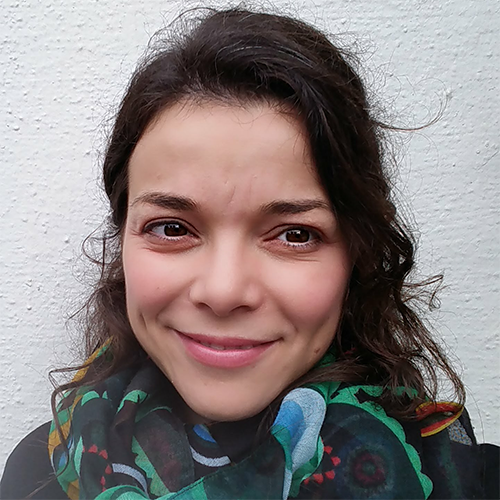 Dr. Anna Lisa Gentile (LinkedIn) is a Researcher at IBM Research Almaden. Her research is principally focused on studying methods and techniques for semantic annotating unstructured and semi-structured content. Her main Research Areas are Information Extraction (IE), Natural Language Processing (NLP) and Semantic Web. She obtained her PhD with a thesis on Named Entity Disambiguation at the University of Bari, Italy in 2010. She has published more than 60 peer-reviewed scientific publications including papers at major venues such as LREC, EMNLP, ESWC and ISWC. She has been serving as Organizing Committee member for conferences such as ISWC, ESWC, WWW amongst many others and organized workshop series such as LD4IE on Linked Data for Information Extraction and HumBL on Augmenting Intelligence with Bias-Aware Humans- in-the-Loop.
Dr. Anna Lisa Gentile (LinkedIn) is a Researcher at IBM Research Almaden. Her research is principally focused on studying methods and techniques for semantic annotating unstructured and semi-structured content. Her main Research Areas are Information Extraction (IE), Natural Language Processing (NLP) and Semantic Web. She obtained her PhD with a thesis on Named Entity Disambiguation at the University of Bari, Italy in 2010. She has published more than 60 peer-reviewed scientific publications including papers at major venues such as LREC, EMNLP, ESWC and ISWC. She has been serving as Organizing Committee member for conferences such as ISWC, ESWC, WWW amongst many others and organized workshop series such as LD4IE on Linked Data for Information Extraction and HumBL on Augmenting Intelligence with Bias-Aware Humans- in-the-Loop.
Tanner Gilligan (SF Bay)
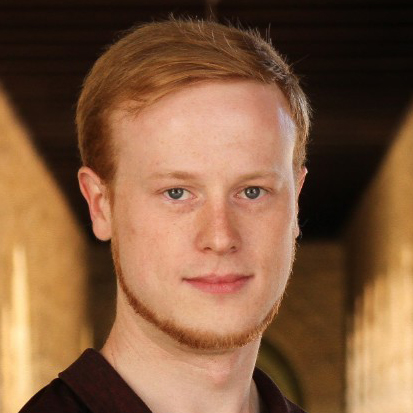 Tanner Gilligan has a passion for both AI and software architecture, and combines these skills in order to lead the platform development at Sculpt. Originally, Tanner grew up in Minnesota where he worked full time during high-school, and moved to California for college and better weather. He completed his B.S. and M.S. in Computer Science (AI) at Stanford University in only four years, and graduated with distinction for being at the top of his class. Prior to Sculpt, he gained hands-on AI experience at TrueCar, Oracle, and several clients while working as a ML consultant.
Tanner Gilligan has a passion for both AI and software architecture, and combines these skills in order to lead the platform development at Sculpt. Originally, Tanner grew up in Minnesota where he worked full time during high-school, and moved to California for college and better weather. He completed his B.S. and M.S. in Computer Science (AI) at Stanford University in only four years, and graduated with distinction for being at the top of his class. Prior to Sculpt, he gained hands-on AI experience at TrueCar, Oracle, and several clients while working as a ML consultant.
Abe Gong (San Francisco ) @AbeGong
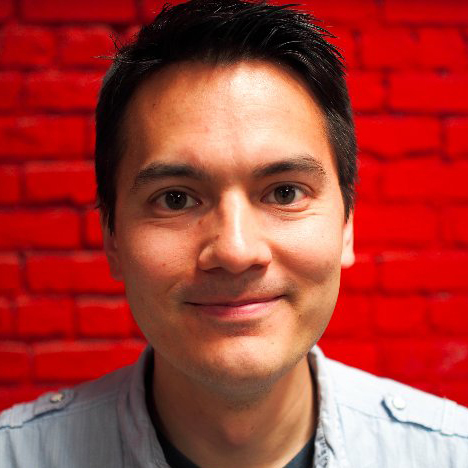 Abe Gong (LinkedIn) is CEO and cofounder at Superconductive Health. A seasoned entrepreneur, Abe has been leading teams using data and technology to solve problems in healthcare, consumer wellness, and public policy for over a decade. Previously, he was chief data officer at Aspire Health, the founding member of the Jawbone data science team, and lead data scientist at Massive Health. Abe holds a PhD in public policy, political science, and complex systems from the University of Michigan. He speaks and writes regularly on data science, healthcare, and the internet of things.
Abe Gong (LinkedIn) is CEO and cofounder at Superconductive Health. A seasoned entrepreneur, Abe has been leading teams using data and technology to solve problems in healthcare, consumer wellness, and public policy for over a decade. Previously, he was chief data officer at Aspire Health, the founding member of the Jawbone data science team, and lead data scientist at Massive Health. Abe holds a PhD in public policy, political science, and complex systems from the University of Michigan. He speaks and writes regularly on data science, healthcare, and the internet of things.
Sony Green (San Francisco)
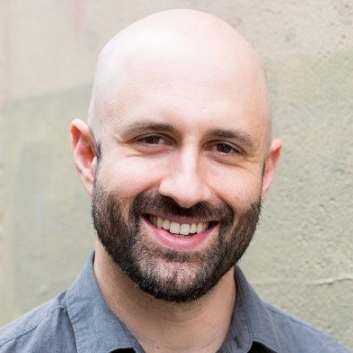 Sony Green is co-founder and Director of Business Development at Kineviz. After receiving his BFA in sculpture from the Rhode Island School of Design, he studied 3D animation at the Vancouver Film School and went on to work for LucasArts, Salesforce, the CDC, Yahoo, IGN, and multiple tech startups. He brings Kineviz’ clients and partners a cross-disciplinary approach to data visualization and analytics.
Sony Green is co-founder and Director of Business Development at Kineviz. After receiving his BFA in sculpture from the Rhode Island School of Design, he studied 3D animation at the Vancouver Film School and went on to work for LucasArts, Salesforce, the CDC, Yahoo, IGN, and multiple tech startups. He brings Kineviz’ clients and partners a cross-disciplinary approach to data visualization and analytics.
Sijie Guo (San Francisco) @sijieg
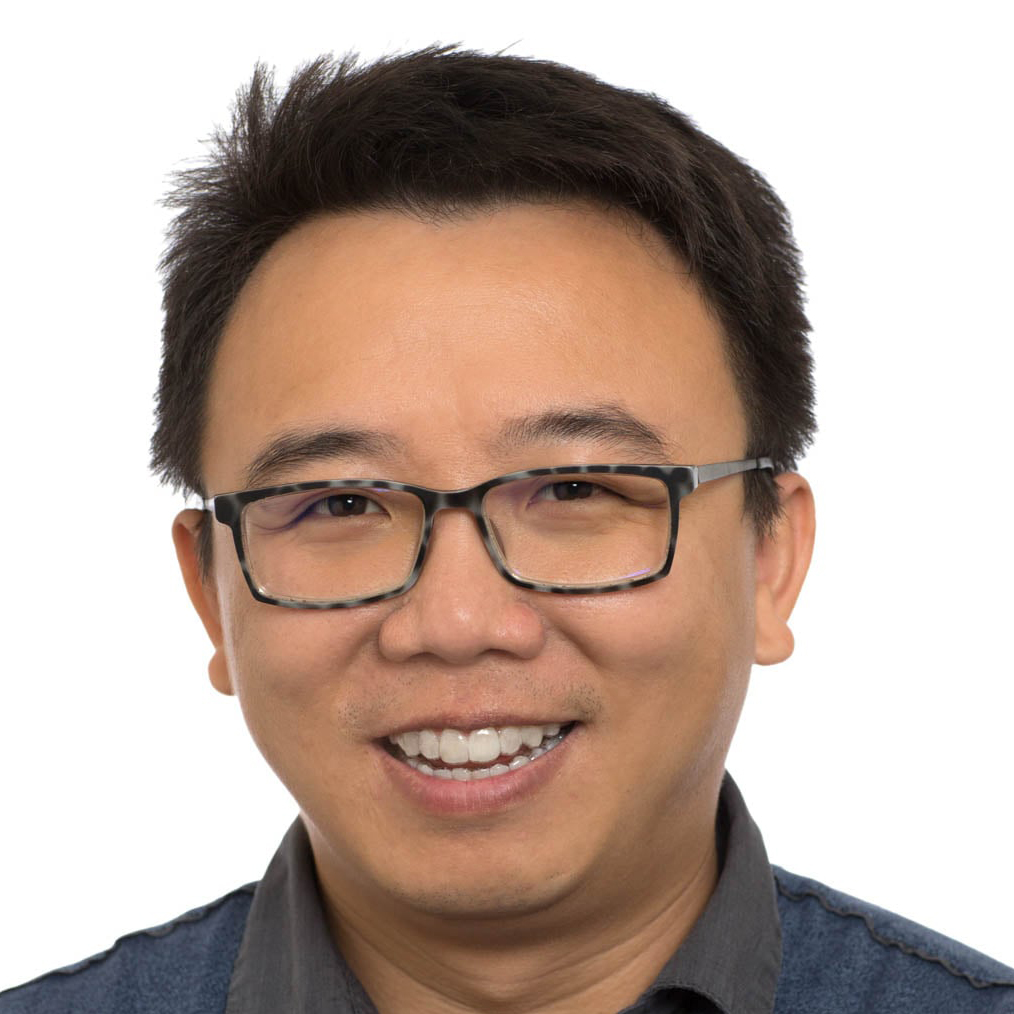 Siejie Guo (Linkedin / GitHub) is the founder and CEO of StreamNative. StreamNative is a data infrastructure startup offering a cloud native event streaming platform based on Apache Pulsar for enterprises. Previously, he was the tech lead for the Messaging Group at Twitter and worked on push notification infrastructure at Yahoo. He is also the VP of Apache BookKeeper and PMC Member of Apache Pulsar.
Siejie Guo (Linkedin / GitHub) is the founder and CEO of StreamNative. StreamNative is a data infrastructure startup offering a cloud native event streaming platform based on Apache Pulsar for enterprises. Previously, he was the tech lead for the Messaging Group at Twitter and worked on push notification infrastructure at Yahoo. He is also the VP of Apache BookKeeper and PMC Member of Apache Pulsar.
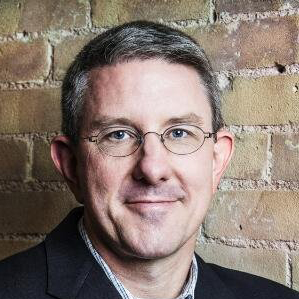 Brian Hall (linkedin) leads the Graph and Analytics Practice at Expero, with consulting expertise across a wide array of graph engines including JanusGraph, DataStax, Neo4j, TigerGraph, Neptune, and CosmosDB.
Brian Hall (linkedin) leads the Graph and Analytics Practice at Expero, with consulting expertise across a wide array of graph engines including JanusGraph, DataStax, Neo4j, TigerGraph, Neptune, and CosmosDB.
Brian’s focus has always been in the application of technology to concrete business problems. He started his career with “fingers on keyboards”, writing code for government agencies, financial markets and commercial software companies. Now he enjoys consulting for clients to help them apply technology and processes to make their businesses better. He has a B.S. in Computer Science from Vanderbilt University and an M.S. in Computer Science from DePaul University.
In their free time, Brian and his wife, Nicole, enjoy watching their kids slowly turn into the adults they will become, traveling, eating good food with good wine, and staying active in Austin with all the outdoor activities and great live music.
Amy Hodler (Kettle Falls, Washington) @amyhodler
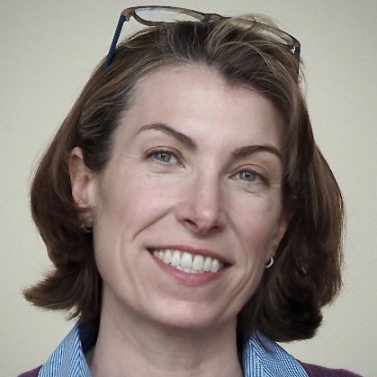 Amy Hodler is a network science devotee and AI and Graph Analytics Program Manager at Neo4j. She promotes the use of graph analytics to reveal structures within real-world networks and predict dynamic behavior. She is the co-author of the O’Reilly book, Graph Algorithms: Practical Examples in Apache Spark and Neo4j. Amy helps teams apply novel approaches to generate new opportunities at companies such as EDS, Microsoft, Hewlett-Packard (HP), Hitachi IoT, and Cray Inc. Amy has a love for science and art with a fascination for complexity studies and graph theory.
Amy Hodler is a network science devotee and AI and Graph Analytics Program Manager at Neo4j. She promotes the use of graph analytics to reveal structures within real-world networks and predict dynamic behavior. She is the co-author of the O’Reilly book, Graph Algorithms: Practical Examples in Apache Spark and Neo4j. Amy helps teams apply novel approaches to generate new opportunities at companies such as EDS, Microsoft, Hewlett-Packard (HP), Hitachi IoT, and Cray Inc. Amy has a love for science and art with a fascination for complexity studies and graph theory.
Rick Houlihan (Austin)
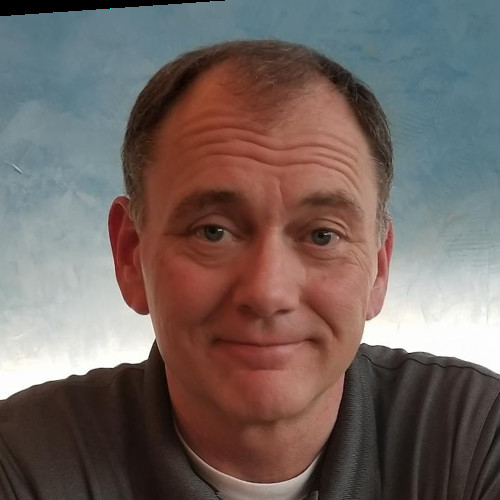 Rick Houlihan is a principal technologist and leads the NoSQL blackbelt team at AWS and has designed hundreds of NoSQL database schemas for some of the largest and most highly scaled applications in the world. Many of Rick’s designs are deployed at the foundation of core Amazon and AWS services such as CloudTrail, IAM, CloudWatch, EC2, Alexa, and a variety of retail internet and fulfillment-center services. Rick brings over 25 years of technology expertise and has authored nine patents across a diverse set of technologies including complex event processing, neural network analysis, microprocessor design, cloud virtualization, and NoSQL technologies. As an innovator in the NoSQL space, Rick has developed a repeatable process for building real-world applications that deliver highly efficient denormalized data models for workloads of any scale, and he regularly delivers highly rated sessions at re:Invent and other AWS conferences on this specific topic.
Rick Houlihan is a principal technologist and leads the NoSQL blackbelt team at AWS and has designed hundreds of NoSQL database schemas for some of the largest and most highly scaled applications in the world. Many of Rick’s designs are deployed at the foundation of core Amazon and AWS services such as CloudTrail, IAM, CloudWatch, EC2, Alexa, and a variety of retail internet and fulfillment-center services. Rick brings over 25 years of technology expertise and has authored nine patents across a diverse set of technologies including complex event processing, neural network analysis, microprocessor design, cloud virtualization, and NoSQL technologies. As an innovator in the NoSQL space, Rick has developed a repeatable process for building real-world applications that deliver highly efficient denormalized data models for workloads of any scale, and he regularly delivers highly rated sessions at re:Invent and other AWS conferences on this specific topic.
Devangana Khokhar (Bengaluru)
 Devangana Khokhar (Linkedin) is a senior data scientist and strategist at ThoughtWorks. She brings 6+ years of experience in building intelligent systems and defining data strategy for clients across multiple domains and geographies. Devangana has a research background in theoretical computer science, information retrieval, and social network analysis. She’s written a book on network sciences titled Gephi Cookbook (Packt Publishing London). Her interests include data privacy and security, the role of data in humanitarian sector, ethics and responsibilities around data, reinforcement learning, and data-driven intelligence in low-resource settings. Devangana frequently consults for and guides nonprofit organizations and social enterprises on the value of data literacy and holds workshops and boot camps on various dimensions of data. She earned her master’s degree in theoretical computer science specializing in social network analysis from PSG College of Technology, Coimbatore, India.
Devangana Khokhar (Linkedin) is a senior data scientist and strategist at ThoughtWorks. She brings 6+ years of experience in building intelligent systems and defining data strategy for clients across multiple domains and geographies. Devangana has a research background in theoretical computer science, information retrieval, and social network analysis. She’s written a book on network sciences titled Gephi Cookbook (Packt Publishing London). Her interests include data privacy and security, the role of data in humanitarian sector, ethics and responsibilities around data, reinforcement learning, and data-driven intelligence in low-resource settings. Devangana frequently consults for and guides nonprofit organizations and social enterprises on the value of data literacy and holds workshops and boot camps on various dimensions of data. She earned her master’s degree in theoretical computer science specializing in social network analysis from PSG College of Technology, Coimbatore, India.
Brad Klingenberg (San Francisco)
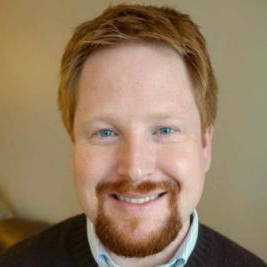 Brad Klingenberg is the Chief Algorithms Officer at Stitch Fix, an online personal styling service that helps people find the clothes they love through personalized shipments of apparel, shoes and accessories. Brad and his team uses statistics, machine learning and human-in-the loop algorithms to optimize the Stitch Fix client experience, the management of inventory and the selection of items for clients. Prior to joining Stitch Fix, Brad received his PhD in Statistics from Stanford University and worked as a data scientist in technology and financial services.
Brad Klingenberg is the Chief Algorithms Officer at Stitch Fix, an online personal styling service that helps people find the clothes they love through personalized shipments of apparel, shoes and accessories. Brad and his team uses statistics, machine learning and human-in-the loop algorithms to optimize the Stitch Fix client experience, the management of inventory and the selection of items for clients. Prior to joining Stitch Fix, Brad received his PhD in Statistics from Stanford University and worked as a data scientist in technology and financial services.
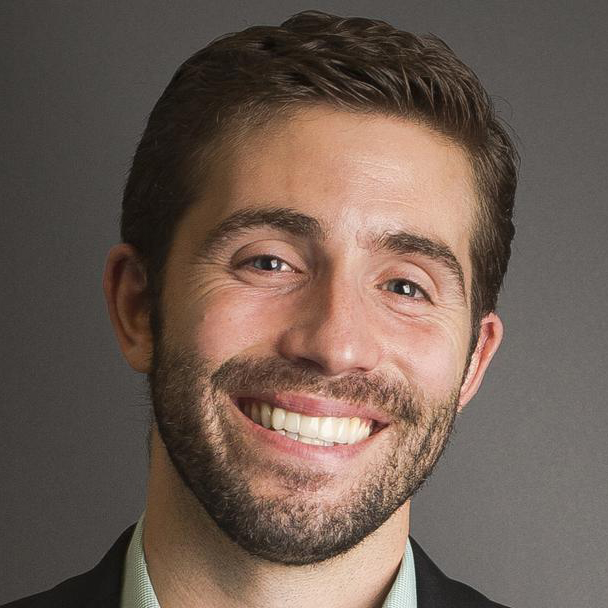 Sean Knapp is the founder and CEO of Ascend.io.
Sean Knapp is the founder and CEO of Ascend.io.
Prior to Ascend.io, Sean was a co-founder, CTO, and Chief Product Officer at Ooyala. At Ooyala Sean played key roles in raising $120M, scaling the company to 500 employees, Ooyala's $400m+ acquisition, as well as Ooyala's subsequent acquisitions of Videoplaza and Nativ. He oversaw all Product, Engineering and Solutions, as well as defined Ooyala's product vision for their award winning analytics and video platform solutions
Before founding Ooyala, Sean worked at Google where he was the technical lead for Google's legendary Web Search Interface team, helping that team increase Google revenues by over $1B. Sean also developed and launched iGoogle, the company's popular, customizable home page. Sean has both B.S. and M.S. degrees in Computer Science from Stanford University.
Brad Knox (Austin)
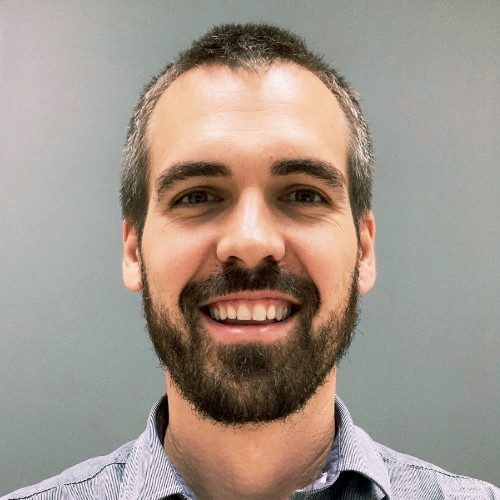 Brad Knox co-leads the Bosch Learning Agents Lab, which is housed at UT Austin and focuses on the development of machine learning algorithms for autonomous driving. Brad was an early pioneer of human-in-the-loop reinforcement learning, the topic of his PhD dissertation at UT. His postdoctoral research at the MIT Media Lab focused on creating interactive characters through machine learning on puppetry-style demonstrations of interaction. Before joining Bosch, Brad founded and sold his startup Bots Alive, working in the toy robotics sector. He has won multiple best paper awards, the 2012 best dissertation award for the UT Austin Department of Computer Science, and was named to IEEE Intelligent Systems' AI 10 to Watch in 2013.
Brad Knox co-leads the Bosch Learning Agents Lab, which is housed at UT Austin and focuses on the development of machine learning algorithms for autonomous driving. Brad was an early pioneer of human-in-the-loop reinforcement learning, the topic of his PhD dissertation at UT. His postdoctoral research at the MIT Media Lab focused on creating interactive characters through machine learning on puppetry-style demonstrations of interaction. Before joining Bosch, Brad founded and sold his startup Bots Alive, working in the toy robotics sector. He has won multiple best paper awards, the 2012 best dissertation award for the UT Austin Department of Computer Science, and was named to IEEE Intelligent Systems' AI 10 to Watch in 2013.
Dale Markowitz (Austin)
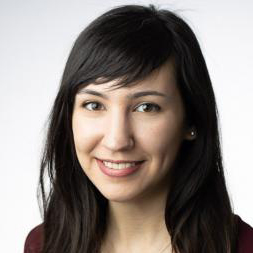 Dale Markowitz is an Applied AI Engineer and Developer Advocate at Google, where she tries to make machine learning tools for developers as intuitive and easy-to-use as possible. Before that, she worked as a software engineer in Google Research and before that at the online dating site OkCupid. She holds a degree in Computer Science from Princeton University.
Dale Markowitz is an Applied AI Engineer and Developer Advocate at Google, where she tries to make machine learning tools for developers as intuitive and easy-to-use as possible. Before that, she worked as a software engineer in Google Research and before that at the online dating site OkCupid. She holds a degree in Computer Science from Princeton University.
Rob McDaniel (Seattle)
 Rob McDaniel is the co-founder and CTO at Sigma IQ, where he leads the development of the world's first fully machine-learned matching engine for enterprise-scale account reconciliation. He cut his teeth with startups during the height of the dot-com crash (oops!) where he and his brother successfully bootstrapped and sold enterprise network solutions into major ISPs. Rob then spent 10 years at Microsoft working on Windows Phone and Excel, before moving on to build machine learning systems at PayScale and local startups. Most recently, Rob managed Applied Sciences at Rakuten, where his team unified R&D across international markets and taxonomies. He also once worked in a lollipop factory.
Rob McDaniel is the co-founder and CTO at Sigma IQ, where he leads the development of the world's first fully machine-learned matching engine for enterprise-scale account reconciliation. He cut his teeth with startups during the height of the dot-com crash (oops!) where he and his brother successfully bootstrapped and sold enterprise network solutions into major ISPs. Rob then spent 10 years at Microsoft working on Windows Phone and Excel, before moving on to build machine learning systems at PayScale and local startups. Most recently, Rob managed Applied Sciences at Rakuten, where his team unified R&D across international markets and taxonomies. He also once worked in a lollipop factory.
Raised in a family of engineers, Rob grew up with computers and was the only one of his friends with a bang path. Despite a brief and confused romance with physics (and alpine climbing), ultimately it was his love of math which drove him to discover machine learning, where he fell in love with NLP and semantics, and ultimately graphs and topologies, which of course is where all roads lead because #GraphsAreEverywhere.
He loves difficult challenges, both physical and mental. He is the kind of person who says “please” and “thank you” to computers, and in his spare time he enjoys studying math and linguistics, and building things.
Gian Merlino (San Francisco) @gianmerlino
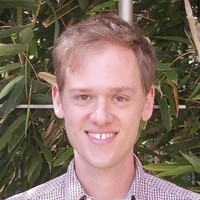 Gian Merlino is CTO and co-founder of Imply, a San Francisco-based technology company, and a committer on Apache Druid. Previously, Gian led the data ingestion team at Metamarkets (now a part of Snapchat) and held senior engineering positions at Yahoo. He holds a BS in Computer Science from Caltech.
Gian Merlino is CTO and co-founder of Imply, a San Francisco-based technology company, and a committer on Apache Druid. Previously, Gian led the data ingestion team at Metamarkets (now a part of Snapchat) and held senior engineering positions at Yahoo. He holds a BS in Computer Science from Caltech.
Jonathan Mugan (Austin) @jmugan
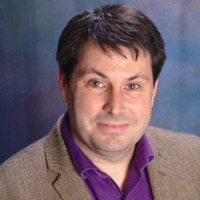 Jonathan Mugan (Linkedin) is a researcher specializing in artificial intelligence, machine learning, and natural language processing. His current research focuses in the area of deep learning for natural language generation and understanding. Dr. Mugan received his Ph.D. in Computer Science from the University of Texas at Austin. His thesis was centered in developmental robotics, which is an area of research that seeks to understand how robots can learn about the world in the same way that human children do. Dr. Mugan also held a post-doctoral position at Carnegie Mellon University, where he worked at the intersection of machine learning and human-computer interaction. One of the most requested speakers at the Data Day Texas conferences, he recently also spoke on the topic of NLP at the O’Reilly AI conference, and is the creator of the O’Reilly video course Natural Language Text Processing with Python. Dr. Mugan is also the author of The Curiosity Cycle: Preparing Your Child for the Ongoing Technological Explosion.
Jonathan Mugan (Linkedin) is a researcher specializing in artificial intelligence, machine learning, and natural language processing. His current research focuses in the area of deep learning for natural language generation and understanding. Dr. Mugan received his Ph.D. in Computer Science from the University of Texas at Austin. His thesis was centered in developmental robotics, which is an area of research that seeks to understand how robots can learn about the world in the same way that human children do. Dr. Mugan also held a post-doctoral position at Carnegie Mellon University, where he worked at the intersection of machine learning and human-computer interaction. One of the most requested speakers at the Data Day Texas conferences, he recently also spoke on the topic of NLP at the O’Reilly AI conference, and is the creator of the O’Reilly video course Natural Language Text Processing with Python. Dr. Mugan is also the author of The Curiosity Cycle: Preparing Your Child for the Ongoing Technological Explosion.
Emanuel Ott (Hannover, Germany)
 Emanuel Ott leads iMerit’s solutions team. Over the past 6 years, he and iMerit’s US/India-based teams have been fueling the world’s leading augmented reality, natural language processing, and self-driving car companies with human annotated ground truth to power their efforts to “see and understand the world”. Emanuel's ceaseless curiosity for innovative technological solutions to human problems has led him to redefine client annotation requirements, improve their data pipelines, and empower them to leverage and hone the power of HITL workflows involving iMerit's workforce of nearly 3,000 in-house employees.
Emanuel Ott leads iMerit’s solutions team. Over the past 6 years, he and iMerit’s US/India-based teams have been fueling the world’s leading augmented reality, natural language processing, and self-driving car companies with human annotated ground truth to power their efforts to “see and understand the world”. Emanuel's ceaseless curiosity for innovative technological solutions to human problems has led him to redefine client annotation requirements, improve their data pipelines, and empower them to leverage and hone the power of HITL workflows involving iMerit's workforce of nearly 3,000 in-house employees.
Arvind Prabhakar (SF Bay) @aprabhakar
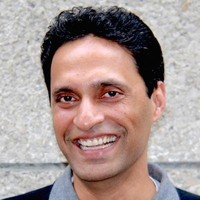 Arvind Prabhakar is cofounder and CTO of StreamSets, provider of the industry’s first DataOps platform for modern data integration. He’s an Apache Software Foundation member and a PMC member on Flume, Sqoop, Storm, and MetaModel projects. Previously, Arvind held many roles at Cloudera, ranging from software engineer to director of engineering.
Arvind Prabhakar is cofounder and CTO of StreamSets, provider of the industry’s first DataOps platform for modern data integration. He’s an Apache Software Foundation member and a PMC member on Flume, Sqoop, Storm, and MetaModel projects. Previously, Arvind held many roles at Cloudera, ranging from software engineer to director of engineering.
Shioulin Sam (New York, NY)
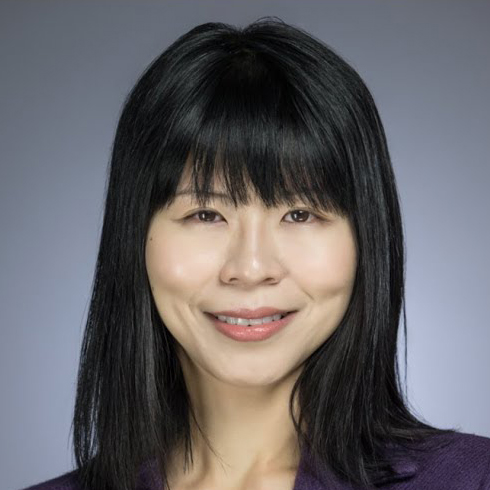 Shioulin Sam is a research engineer at Cloudera Fast Forward Labs, where she bridges academic research in machine learning with industrial applications. Previously, she managed a portfolio of early stage ventures focusing on women-led startups and public market investments and worked in the investment management industry designing quantitative strategies. She holds a PhD in electrical engineering and computer science from the Massachusetts Institute of Technology.
Shioulin Sam is a research engineer at Cloudera Fast Forward Labs, where she bridges academic research in machine learning with industrial applications. Previously, she managed a portfolio of early stage ventures focusing on women-led startups and public market investments and worked in the investment management industry designing quantitative strategies. She holds a PhD in electrical engineering and computer science from the Massachusetts Institute of Technology.
Brent Schneeman (Austin) @schnee
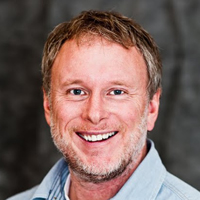 Brent Schneeman swipes right for science and seeks to strengthen the scientific method muscle in whatever group he finds himself. Operating from a “lead by example” mindset, Brent frequently rolls up his sleeves and writes code to help bring predictive models to business problems. Passionate about building great teams and cultures, he’s pretty sure that a “servant leadership” posture is the right posture in his personal and professional lives.
Brent Schneeman swipes right for science and seeks to strengthen the scientific method muscle in whatever group he finds himself. Operating from a “lead by example” mindset, Brent frequently rolls up his sleeves and writes code to help bring predictive models to business problems. Passionate about building great teams and cultures, he’s pretty sure that a “servant leadership” posture is the right posture in his personal and professional lives.
Professionally, he tends to look after teams of data- and machine-learning-oriented contributors (analysts, scientists, and engineers) who collaborate on diverse sets of machine learning projects such as continuous optimization, customer customer churn prediction, fraud detection, and applying diverse techniques to unstructured data. Brent has worked at Vrbo, PayPal, Visa, and other small- and large-companies in individual contributor or management roles, mostly in product development organizations. He currently is attempting to make the world safe for machine learning with Alegion.
A storyteller, Brent has presented at the UT McCombs School, South By Southwest, NLP Day, multiple Data Days, and various meetups. He has one degree in Mathematics and another in Electrical Engineering and lives in Austin Texas with his wife, three kids, two cats and one dog. While he spends most of his free time mowing the lawn, he enjoys making photographs, running around downtown, and occasionally tries to make sense of neural network architectures.
Rosaria Silipo (Zürich ) @DMR_Rosaria
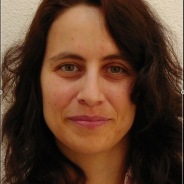 Rosaria Silipo (LinkedIn), Principal Data Scientist at KNIME, is the author of 50+ technical publications, including her most recent book “Practicing Data Science: A Collection of Case Studies”. She holds a doctorate degree in bio-engineering and has spent 25+ years working on data science projects for companies in a broad range of fields, including IoT, customer intelligence, the financial industry, and cybersecurity.
Rosaria Silipo (LinkedIn), Principal Data Scientist at KNIME, is the author of 50+ technical publications, including her most recent book “Practicing Data Science: A Collection of Case Studies”. She holds a doctorate degree in bio-engineering and has spent 25+ years working on data science projects for companies in a broad range of fields, including IoT, customer intelligence, the financial industry, and cybersecurity.
Abraham Starosta (SF Bay)
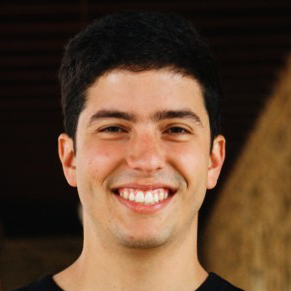 Abraham Starosta is passionate about democratizing AI. Prior to Sculpt, He enjoyed researching NLP, multitask learning and weak supervision at Stanford. He has built text intelligence products for financial institutions at Primer AI, and co-founded the technical recruiting agency for startups Human Capital. He finished his B.S and M.S in Computer Science from Stanford specializing in AI and NLP.
Abraham Starosta is passionate about democratizing AI. Prior to Sculpt, He enjoyed researching NLP, multitask learning and weak supervision at Stanford. He has built text intelligence products for financial institutions at Primer AI, and co-founded the technical recruiting agency for startups Human Capital. He finished his B.S and M.S in Computer Science from Stanford specializing in AI and NLP.
Ryan Wisnesky (Cambridge, Massachusetts )
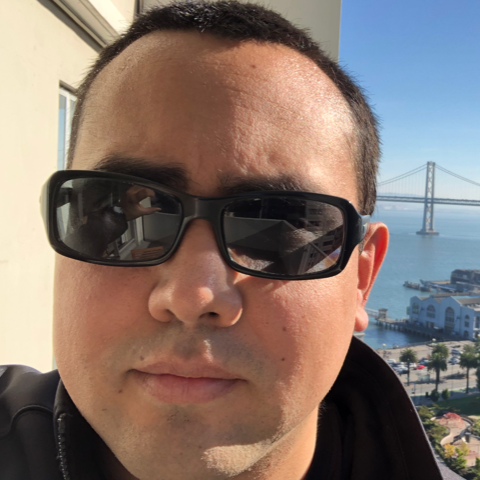 Ryan Wisnesky (LinkedIn) obtained B.S. and M.S. degrees in mathematics and computer science from Stanford University and a Ph.D. in computer science from Harvard University, where he studied the design and implementation of provably correct software systems. Previously, he was a postdoctoral associate in the MIT department of mathematics, where he developed the categorical query language CQL. He currently leads open-source and commercial development of CQL as CTO of Conexus AI. He maintains an active collaboration with the information-integration department of IBM Research, where he contributed to the Clio, Orchid, and HIL projects.
Ryan Wisnesky (LinkedIn) obtained B.S. and M.S. degrees in mathematics and computer science from Stanford University and a Ph.D. in computer science from Harvard University, where he studied the design and implementation of provably correct software systems. Previously, he was a postdoctoral associate in the MIT department of mathematics, where he developed the categorical query language CQL. He currently leads open-source and commercial development of CQL as CTO of Conexus AI. He maintains an active collaboration with the information-integration department of IBM Research, where he contributed to the Clio, Orchid, and HIL projects.
Corey Zumar (SF Bay )
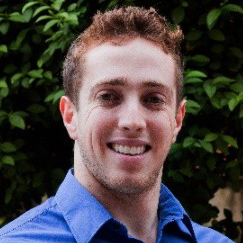 Corey Zumar (LinkedIn) is a software engineer at Databricks, where he’s working on machine learning infrastructure and APIs for model management and production deployment. Corey is also an active contributor to MLflow. He holds a master’s degree in computer science from UC Berkeley. At UC Berkeley’s RISELab, he was one of the lead developers of Clipper, an open source project and research effort focused on high-performance model serving.
Corey Zumar (LinkedIn) is a software engineer at Databricks, where he’s working on machine learning infrastructure and APIs for model management and production deployment. Corey is also an active contributor to MLflow. He holds a master’s degree in computer science from UC Berkeley. At UC Berkeley’s RISELab, he was one of the lead developers of Clipper, an open source project and research effort focused on high-performance model serving.
Thomas Cook (Austin) @Datta_Boy
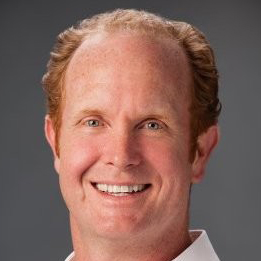 Thomas Cook is Director of Sales at Cambridge Semantics. He has a Masters in Computer Science from Texas State University and brings 20+ years experience in Software Engineering, ETL, Data Warehousing and Big Data. Prior to joining Cambridge Semantics, Thomas worked at SAS, IBM, Netezza and Talend.
Thomas Cook is Director of Sales at Cambridge Semantics. He has a Masters in Computer Science from Texas State University and brings 20+ years experience in Software Engineering, ETL, Data Warehousing and Big Data. Prior to joining Cambridge Semantics, Thomas worked at SAS, IBM, Netezza and Talend.
Jonathan Ellis (Austin) @spyced
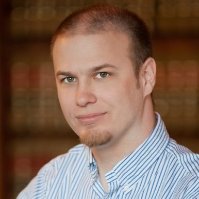 Jonathan Ellis is CTO and co-founder at DataStax. Prior to DataStax, Jonathan worked extensively with Apache Cassandra while employed at Rackspace. Prior to Rackspace, Jonathan built a multi-petabyte, scalable storage system based on Reed-Solomon encoding for backup provider Mozy.
Jonathan Ellis is CTO and co-founder at DataStax. Prior to DataStax, Jonathan worked extensively with Apache Cassandra while employed at Rackspace. Prior to Rackspace, Jonathan built a multi-petabyte, scalable storage system based on Reed-Solomon encoding for backup provider Mozy.
Stefan Hausotte (Bochum, North Rhine-Westphalia) @_secana_
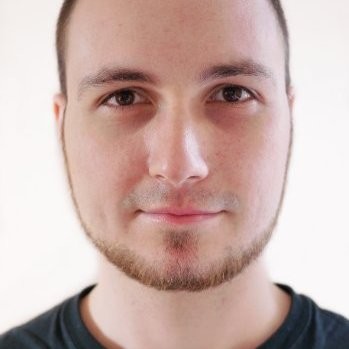 Stefan Hausotte is the team lead for “Automated Threat Analysis” at G DATA, where he plans and coordinates the development of automated malware analysis and classification tools. He is an active open source committer in different projects related to security, .NET and software development areas. Furthermore he teaches IT-Security at the Technical University of Dortmund and is a frequent speaker about security related topics at conferences and fairs. He believes that a graph is the natural representation of the different interconnections between malware and malicious actors and a graph database is the right approach as an underlying technology for efficient malware analysis at large scale.
Stefan Hausotte is the team lead for “Automated Threat Analysis” at G DATA, where he plans and coordinates the development of automated malware analysis and classification tools. He is an active open source committer in different projects related to security, .NET and software development areas. Furthermore he teaches IT-Security at the Technical University of Dortmund and is a frequent speaker about security related topics at conferences and fairs. He believes that a graph is the natural representation of the different interconnections between malware and malicious actors and a graph database is the right approach as an underlying technology for efficient malware analysis at large scale.
Victor Lee (Kent, Ohio)
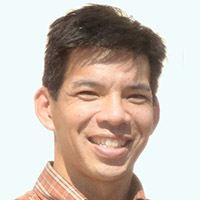 Dr. Victor Lee is Director of Product Management at TigerGraph, overseeing all its product lines. He brings a strong academic background, decades of industry experience, and a commitment to quality and service. Victor was a circuit designer and technology transfer manager at Rambus, before returning to school for his computer science doctorate, focusing on graph data mining. He received his BS in Electrical Engineering and Computer Science from UC Berkeley, MS in Electrical Engineering from Stanford University, and PhD in Computer Science from Kent State University. Before joining TigerGraph in 2015, he was a visiting professor at John Carroll University.
Dr. Victor Lee is Director of Product Management at TigerGraph, overseeing all its product lines. He brings a strong academic background, decades of industry experience, and a commitment to quality and service. Victor was a circuit designer and technology transfer manager at Rambus, before returning to school for his computer science doctorate, focusing on graph data mining. He received his BS in Electrical Engineering and Computer Science from UC Berkeley, MS in Electrical Engineering from Stanford University, and PhD in Computer Science from Kent State University. Before joining TigerGraph in 2015, he was a visiting professor at John Carroll University.
Josh Perryman (Bryan / College Station) @joshperryman
 Josh Perryman likes to play with data. Oftentimes this is implementing proprietary algorithms closer to the data for performance or scale. Sometimes it is ad-hoc investigation and analysis, a sort of exploratory querying. A few times he’s been able to leverage his experience with data engines for dramatic performance improvements. But the real joy is designing a schema for both functionality and performance, one which increases the productivity of other developers and enables a technology to solve new problems or deliver new value to the business.
Josh Perryman likes to play with data. Oftentimes this is implementing proprietary algorithms closer to the data for performance or scale. Sometimes it is ad-hoc investigation and analysis, a sort of exploratory querying. A few times he’s been able to leverage his experience with data engines for dramatic performance improvements. But the real joy is designing a schema for both functionality and performance, one which increases the productivity of other developers and enables a technology to solve new problems or deliver new value to the business.
Technology isn't just data, and Josh does more than just play with data. He’s worked with high performance computing (HPC) environments, taking computations from hours to minutes or seconds. He has built visualizations which deliver new insights into complex data domains. He’s managed technology personnel, both directly and indirectly, to deliver technology solutions. Josh has put together more types of technology components, software and hardware, than can be counted, because one of his fortes is solving problems by building sustainable systems. Josh is currently Director of Product Development, Graph Solutions at VeracityID.
Stefan Plantikow (Berlin)
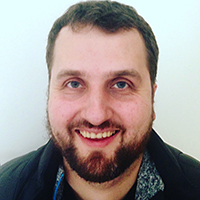 Stefan Plantikow is the Project Lead and Editor for the next generation declarative Graph Query Language GQL (ISO/IEC 39075). He works at Neo4j, the leading property graph database company as a Standards Expert and Product Manager in the Query Language Standards and Research team that is undertaking research into graph query languages and language standards, with the aim of evolving the state of the art of property graph querying.
Stefan Plantikow is the Project Lead and Editor for the next generation declarative Graph Query Language GQL (ISO/IEC 39075). He works at Neo4j, the leading property graph database company as a Standards Expert and Product Manager in the Query Language Standards and Research team that is undertaking research into graph query languages and language standards, with the aim of evolving the state of the art of property graph querying.
Stefan's background is in Computer Science with a focus on distributed systems and transaction processing. In the past, he has worked on enterprise application integration, large-scale climate data management, and scalable overlay networks. At Neo4j, he played key roles in the design of the Cypher graph query language and the openCypher project, the development of the first cost-based planner for property graph databases and pioneered the architecture of Cypher for Apache Spark and Neo4j Morpheus. Stefan is passionate about computer language design, how languages as a medium enable access to new technology, and related topics, as well as continuously exploring how to expand the scope and applicability of graph technology in a way that makes it easily accessible to users. Stefan is currently based in Berlin, Germany.
Dr. Marko A. Rodriguez (Santa Fe) @twarko
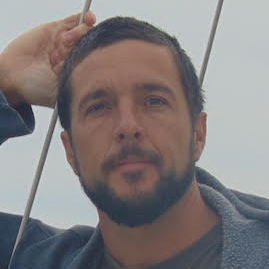 Dr. Marko A. Rodriguez (LinkedIn) is a graph and stream computing specialist currently focused on designing stream-based virtual machines for processing graph-based structures within distributed computing environments. Marko is the co-founder of Apache TinkerPop where he is developing the next generation TinkerPop4 virtual machine and bytecode specification that will enable the natural integration of any data processor and query language. Marko is also the founder of RReduX which, along with developing TinkerPop4, is designing a universal distributed computer called GMachine. Dr. Rodriguez received his Ph.D. in computer science from the University of California at Santa Cruz and was a Director's Fellow at the Center for Nonlinear Studies at the Los Alamos National Laboratory.
Dr. Marko A. Rodriguez (LinkedIn) is a graph and stream computing specialist currently focused on designing stream-based virtual machines for processing graph-based structures within distributed computing environments. Marko is the co-founder of Apache TinkerPop where he is developing the next generation TinkerPop4 virtual machine and bytecode specification that will enable the natural integration of any data processor and query language. Marko is also the founder of RReduX which, along with developing TinkerPop4, is designing a universal distributed computer called GMachine. Dr. Rodriguez received his Ph.D. in computer science from the University of California at Santa Cruz and was a Director's Fellow at the Center for Nonlinear Studies at the Los Alamos National Laboratory.
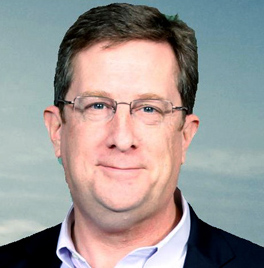 Steve Sarsfield, VP of Product at Cambridge Semantics / AnzoGraph, is a long time industry expert with experience at Talend, Vertica and now Cambridge Semantics. He is also author of the book The Data Governance Imperative. Steve has more than 20 years of experience in databases, analytics, information quality, big data and data governance.
Steve Sarsfield, VP of Product at Cambridge Semantics / AnzoGraph, is a long time industry expert with experience at Talend, Vertica and now Cambridge Semantics. He is also author of the book The Data Governance Imperative. Steve has more than 20 years of experience in databases, analytics, information quality, big data and data governance.
Semih Salihoglu (Waterloo, Ontario) @phoo
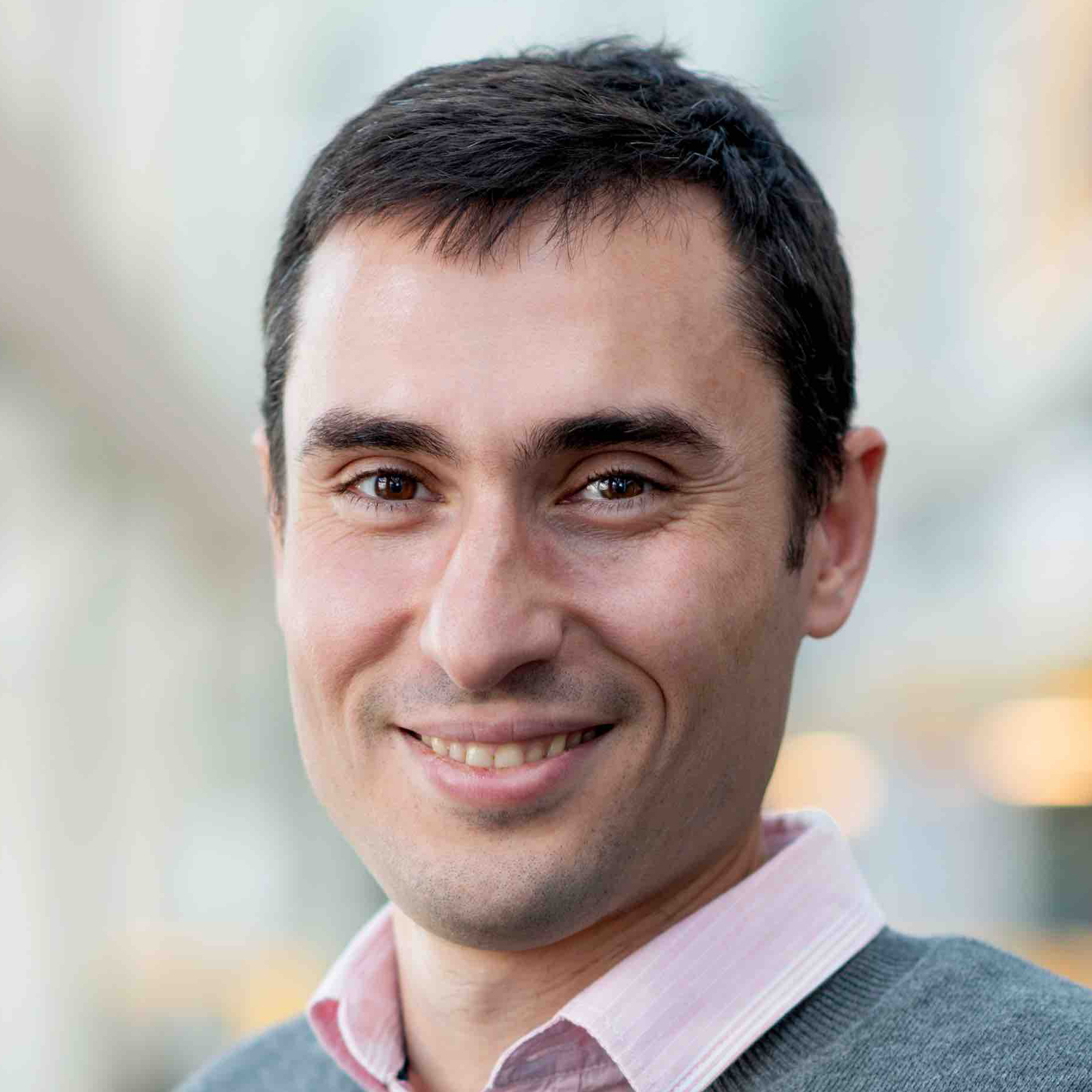 Semih Salihoglu is an assistant professor at University of Waterloo's Cheriton School of Computer Science. He is a member of the Data Systems Research Group. Dr. Salihoglu does both systems and theoretical research in data management and processing. His systems work focuses on developing systems for managing, querying, or doing analytics on graph-structured data. His main on-going systems projects include Graphflow, which is a new graph database his team are building from scratch, and GraphWrangler which is a system designed to give an immediate graph-view on relational data. His theoretical work focuses on studying theoretical aspects of distributed algorithms for query processing.
Semih Salihoglu is an assistant professor at University of Waterloo's Cheriton School of Computer Science. He is a member of the Data Systems Research Group. Dr. Salihoglu does both systems and theoretical research in data management and processing. His systems work focuses on developing systems for managing, querying, or doing analytics on graph-structured data. His main on-going systems projects include Graphflow, which is a new graph database his team are building from scratch, and GraphWrangler which is a system designed to give an immediate graph-view on relational data. His theoretical work focuses on studying theoretical aspects of distributed algorithms for query processing.
Joshua Shinavier (San Francisco) @joshsh
 Joshua Shinavier is a primordial being of the graph database domain. As a co-founder of what is now Apache TinkerPop, he contributed to the first common APIs for graph databases, the original TinkerPop query language which influenced Gremlin, and the first tools which aligned the property graph and RDF data models, starting with neo4j-rdf-sail in 2008. At Uber, he leads the company-wide effort to unify data models and schemas across RPC, streaming, and storage. The scope of this effort includes developing standardized schemas, propagating standardized schemas throughout the company's infrastructure, developing mappings to integrate data across languages and environments, and getting as much as possible of Uber's data connected in the form of a graph of entities and relationships, facilitating data discovery and automated query planning. Joshua holds a PhD in computer science from RPI's Tetherless World Constellation, where he took the opportunity to explore the strange no man's land between graphs, cognition, and augmented reality. He feels, now as always, that the research, business, and open source communities have a lot to learn from each other with respect to graphs and knowledge representation.
Joshua Shinavier is a primordial being of the graph database domain. As a co-founder of what is now Apache TinkerPop, he contributed to the first common APIs for graph databases, the original TinkerPop query language which influenced Gremlin, and the first tools which aligned the property graph and RDF data models, starting with neo4j-rdf-sail in 2008. At Uber, he leads the company-wide effort to unify data models and schemas across RPC, streaming, and storage. The scope of this effort includes developing standardized schemas, propagating standardized schemas throughout the company's infrastructure, developing mappings to integrate data across languages and environments, and getting as much as possible of Uber's data connected in the form of a graph of entities and relationships, facilitating data discovery and automated query planning. Joshua holds a PhD in computer science from RPI's Tetherless World Constellation, where he took the opportunity to explore the strange no man's land between graphs, cognition, and augmented reality. He feels, now as always, that the research, business, and open source communities have a lot to learn from each other with respect to graphs and knowledge representation.
Michael Uschold (Seattle, WA ) @UscholdM
 Michael Uschold, Senior Ontology Consultant at Semantic Arts, has over twenty-five years’ experience in developing and transitioning semantic technology from academia to industry. He pioneered the field of ontology engineering, co-authoring the first paper and giving the first tutorial on the topic in 1995 in the UK.
Michael Uschold, Senior Ontology Consultant at Semantic Arts, has over twenty-five years’ experience in developing and transitioning semantic technology from academia to industry. He pioneered the field of ontology engineering, co-authoring the first paper and giving the first tutorial on the topic in 1995 in the UK.
As a senior ontology consultant at Semantic Arts since October 2010, Michael trains and guides clients to better understand and leverage semantic technology using knowledge graphs. He has built commercial enterprise ontologies in digital asset management, finance, healthcare, legal research, consumer products, electrical devices, manufacturing and corporation registration. More recently he has focused on semantic application development using SPARQL for application code and R2RML for converting relational data into a knowledge graph.
During 2008-2009, Uschold worked at Reinvent on a team that developed a semantic advertising platform that substantially increased revenue. As a research scientist at Boeing from 1997-2008 he defined, led and participated in numerous projects applying semantic technology to enterprise challenges. He is a frequent invited speaker and panelist at national and international events, and serves on the editorial board of the Applied Ontology Journal. He received his Ph.D. in AI from Edinburgh University in 1991 and an MSc. from Rutgers University in Computer Science in 1982.
Ted Wilmes (Oklahoma City) @trwilmes
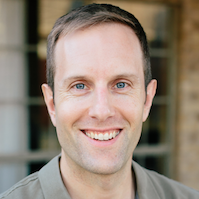 Ted Wilmes, Data Architect at Expero, is a graduate of Trinity University where he studied computer science and art history. He started his professional career at a not-for-profit research and development institution where he performed contract software development work for a variety of government and commercial clients. During this time he worked on everything from large enterprise systems to smaller, cutting edge research and development projects. One of the most rewarding parts of each of these projects was the time spent collaborating with the customer.
Ted Wilmes, Data Architect at Expero, is a graduate of Trinity University where he studied computer science and art history. He started his professional career at a not-for-profit research and development institution where he performed contract software development work for a variety of government and commercial clients. During this time he worked on everything from large enterprise systems to smaller, cutting edge research and development projects. One of the most rewarding parts of each of these projects was the time spent collaborating with the customer.
As Ted’s career continued, he moved on to an oil and gas startup and continued to dig deeper into the data side of software development, gaining an even deeper interest in how databases work and how to eek as much performance out of them as possible. During this time he became interested in the application of graph databases to certain problem sets. Today, at Expero, Ted enjoys putting his deep knowledge of transactional graph computing to work as he helps customers of all types navigate the burgeoning property graph database landscape.
Outside of work, Ted enjoys spending time with his family out-of-doors, listening to and playing loud music, and contributing to the Apache TinkerPop project as a committer and PMC member.

 Holden Karau
Holden Karau Robert Munro
Robert Munro

 In two decades in the data management industry,
In two decades in the data management industry, 

 Michael Uschold
Michael Uschold



 Dr. Anna Lisa Gentile
Dr. Anna Lisa Gentile
 Abe Gong
Abe Gong







 Brad Knox
Brad Knox Dale Markowitz
Dale Markowitz Rob McDaniel
Rob McDaniel
 Jonathan Mugan (Linkedin)
Jonathan Mugan (Linkedin)



 Rosaria Silipo
Rosaria Silipo
 Ryan Wisnesky (LinkedIn) obtained B.S. and M.S. degrees in mathematics and computer science from Stanford University and a Ph.D. in computer science from Harvard University, where he studied the design and implementation of provably correct software systems. Previously, he was a postdoctoral associate in the MIT department of mathematics, where he developed the categorical query language CQL. He currently leads open-source and commercial development of CQL as CTO of Conexus AI. He maintains an active collaboration with the information-integration department of IBM Research, where he contributed to the Clio, Orchid, and HIL projects.
Ryan Wisnesky (LinkedIn) obtained B.S. and M.S. degrees in mathematics and computer science from Stanford University and a Ph.D. in computer science from Harvard University, where he studied the design and implementation of provably correct software systems. Previously, he was a postdoctoral associate in the MIT department of mathematics, where he developed the categorical query language CQL. He currently leads open-source and commercial development of CQL as CTO of Conexus AI. He maintains an active collaboration with the information-integration department of IBM Research, where he contributed to the Clio, Orchid, and HIL projects. 








 Semih Salihoglu
Semih Salihoglu
 Michael Uschold
Michael Uschold






